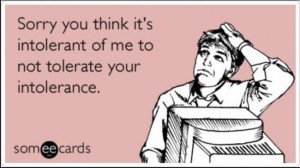
My former professor, John McAdams, has been under attack for the past several months and is now to be fired from his tenured position at Marquette University. His crime is a blog post in which he brought attention to an undergraduate’s experience in and after a philosophy course in which the teaching assistant refused the student the chance to discuss his position against gay marriage.
So to reiterate: McAdams’ offense was to call attention to a student who was denied the opportunity to give voice to the official position of the Catholic Church at a Catholic university. This was because, in the teaching assistant’s (recorded) words, “homophobic comments…will not be tolerated.”
What happened from there is an interesting story, and a letter from the Foundation for Individual Rights in Education provides a pretty decent account of it. The only other material facts, though I think they’re actually distractions, are that the teaching assistant started to receive intimidating messages in the aftermath of the blog post. To be clear, that’s terrible and intolerable. But to blame it on McAdams’ blog post, as if calling attention to the student’s experience was so incendiary that people simply had to react with threats and intimidation, is ludicrous and tremendously threatening to academic freedom and, in a broader sense, free speech.
I’m searching online accounts of this story to try to find the other side, something that will complicate what appears to be really an outrageous offense against academic freedom. While I can see that the intimidations and threats against the TA were indefensible and intolerable, I cannot possibly see the logic of blaming McAdams for them.
In a world in which we feel compelled to identify with the grossly offensive Charlie Hebdo in the name of free speech, why can’t we identify with a professor or a student who voices unpopular views?
